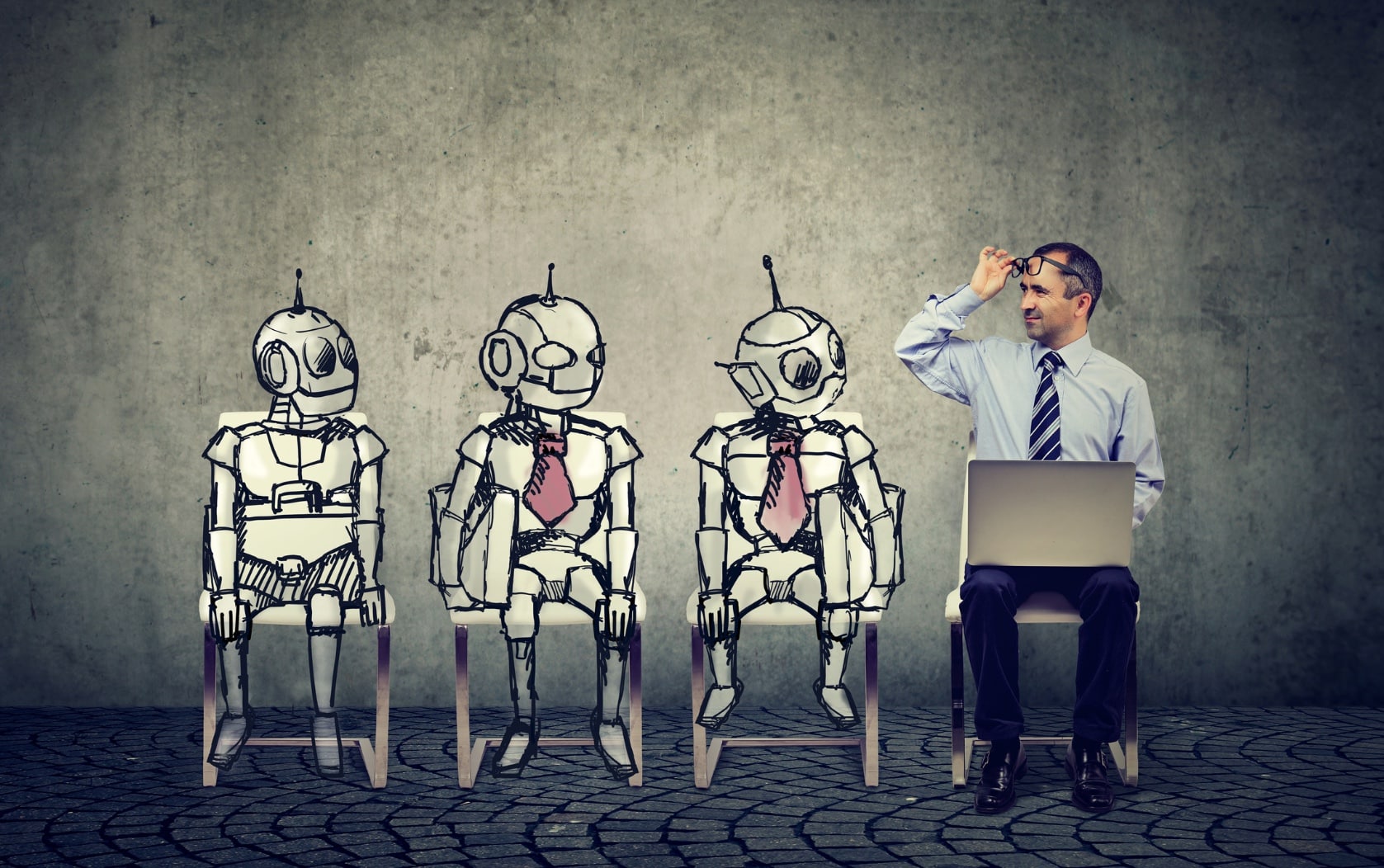Will we be replaced by artificial intelligence? We are asking ourselves this question more and more frequently. AI, machine learning, and automation are technologies that are developing at a frightening rate, and they are redefining our reality, including our professional lives. According to a report by the McKinsey Global Institute, as many as 800 million jobs could disappear by 2030. What positions will these be? Why will this happen and will new professions emerge in their place? What skills will be required and valued in the future? Marta Barcicka, an expert in Human Resources and IT, discusses the development of AI and the challenges associated with it.
The issue of artificial intelligence in the workplace is being discussed more frequently. The revolution caused by AI is just one of the major structural changes that will shape the direction of global economic development over the next few decades. As future workers become more fearful, they increasingly seek solutions that will help them navigate this new reality. Meanwhile, employers look to the future hoping that artificial intelligence will provide new development opportunities.
“Workers are more fearful of artificial intelligence than their superiors. The latter view technology as a potential opportunity for cost-cutting and savings. The former, however, believe that they will not be able to find work, that their jobs and professions will disappear. These fears are fueled by changes in the labor market. Some jobs, such as assistants or receptionists – roles that can be successfully undertaken by artificial intelligence – are slowly disappearing,” says Marta Barcicka. “On one hand, the fear of the unknown is justified. On the other hand, artificial intelligence is an opportunity – it offers unlimited possibilities and creates new trends in the market. After all, the evolution of work is a natural phenomenon,” stresses Barcicka.
Reskilling: An Opportunity in the Job Market
The dynamics of the market and rapid technological advancement are not only causing job markets worry. As digitalization rapidly increases, employers are struggling with a so-called ‘skills gap’. The Polish Economic Institute estimates that the IT industry is currently short of around 150,000 hands – roughly the population of Bytom or Zabrze. To “have” employees today, IT companies often have to look mainly at their competitors.
“To ‘fill’ the skills gap, reskilling can help those who have never been involved in the IT industry start a career in new technologies. Another solution is internal training in companies, which will reduce the outflow of employees who could potentially shift to other departments within the same organization,” says Marta Barcicka. “There are many companies in the market today that offer instant success in the new field. Unfortunately, some of them lure with promises that are not kept in the end, which we may have to pay dearly for. During many of these training courses, we will not really learn anything – despite the money spent and the time devoted nobody will want to hire us. Therefore, I recommend approaching the topic of reskilling with care – it is a long-term process requiring not only learning but also starting from scratch, slowly gaining experience in a new profession,” points out Barcicka.
Well-being over Benefits
According to the World Economic Forum, by 2030, mental disorders will account for more than half of the global economic burden caused by mental illnesses. Therefore the impact of mental disorders on the economy is becoming one of the most important issues to address. Work burn-out, depression and anxiety disorders are becoming increasingly problematic. Avoiding them will be a challenge for employers, who should primarily remember that the most important factor influencing the efficiency of an employee is their wellbeing.
“Employers are paying more and more attention to well-being, but many do not realize how broad this concept is. Researchers from the Gallup Institute have identified five dimensions that make up well-being: physical, emotional, social, professional, and intellectual. Only when each of these specific needs is satisfied can we talk about good well-being,” highlights Marta Barcicka. “From my experience, employees are most often missing free time. In the pursuit of achieving KPIs, we often lose sight of what is important, such as spending time with family and harmoniously combining private life with work. It’s important for employers to really understand this need as well as the needs of their employees, and to be aware that caring for the well-being and mental health of employees not only lies on their side but is even their responsibility,” stresses Marta Barcicka.
According to the WHO, more comprehensive health care and effective interventions in the field of mental health are not only beneficial from the standpoint of individual wellbeing but also bring significant economic benefits. Benefits offered at work can slightly raise employees’ well-being. However, over the last 10 years, they have ceased to play such a significant role in the job market. They can influence the final decision of an employee considering a job offer but these days, focus is being placed more and more on the well-being and health of employees.
